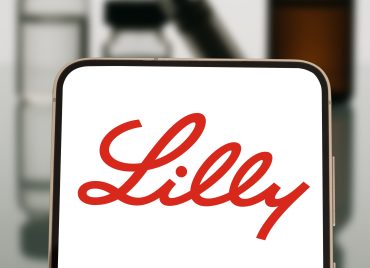
Eli Lilly's $650 Million AI Partnership Targets Muscle-Preserving Obesity Drugs
6 minute read

AI-Powered Deal Aims to Transform Obesity Treatment by Preventing Muscle Loss with Next-Gen Therapeutics
Three Key Facts
- Eli Lilly partnered with Juvena Therapeutics in a deal worth over $650 million in potential milestones to develop muscle-boosting drugs using AI-enabled platforms
- This marks Lilly’s second major obesity/metabolic disease collaboration within one week, following an $870 million deal with Camurus, indicating aggressive market expansion
- Lilly’s 2024 Q4 revenues surged 45% year-over-year to $13.53 billion, driven primarily by metabolic disease products like Mounjaro and Zepbound
Introduction
Eli Lilly accelerates its dominance in the obesity treatment market through a strategic partnership with Juvena Therapeutics, committing over $650 million in potential milestones to develop next-generation muscle health therapeutics. According to Fierce Biotech, the collaboration harnesses Juvena’s artificial intelligence platform to identify drug candidates that enhance muscle health and body composition.
The partnership addresses a critical gap in current obesity treatments, where popular GLP-1 medications often lead to unwanted muscle mass loss. This collaboration represents Lilly’s second major metabolic disease deal within a single week, signaling an aggressive strategy to capture market share in the rapidly expanding obesity therapeutics sector.
Key Developments
Juvena brings its proprietary JuvNET platform to the partnership, which maps therapeutic potential of stem-cell-secreted proteins through comprehensive databases linking these proteins to disease phenotypes. The technology recently produced JUV-161, a fusion protein targeting muscle regeneration currently in human trials for myotonic dystrophy type 1 and sarcopenia.
The company’s pipeline includes JUV-112, a preclinical obesity candidate that induces fat breakdown while preserving muscle mass through novel, non-appetite-suppressing mechanisms. Lilly gains exclusive licensing rights to lead candidates identified through Juvena’s platform, maintaining commercial control over future revenue streams.
This collaboration follows Lilly’s acquisition of Versanis Bio for $1.92 billion, which provided access to bimagrumab, an antibody promoting skeletal muscle growth. The company anticipates reporting phase 2 trial data combining bimagrumab with Novo Nordisk’s semaglutide this year.
Market Impact
The muscle health focus responds to growing concerns about GLP-1 medications causing lean mass loss, particularly problematic for elderly patients facing increased fall and fracture risks. Market analysts project broad patient populations could benefit, spanning elderly individuals with sarcopenia to patients recovering from severe illnesses causing muscle loss.
Major competitors actively pursue similar strategies, with Roche acquiring Carmot Therapeutics for $2.7 billion for obesity-targeted molecules. Regeneron invested $80 million in Hansoh Pharma’s GLP-1/GIP receptor agonist to strengthen muscle drug assets alongside existing portfolios.
The deal structure includes upfront payments, equity investment, and milestone-based payments tied to development achievements. This approach minimizes Lilly’s initial financial exposure while incentivizing Juvena to meet critical development targets.
Strategic Insights
Lilly’s rapid succession of high-value partnerships demonstrates deliberate market domination strategy in obesity and metabolic health sectors. The Juvena collaboration, combined with the recent $870 million Camurus deal, broadens both therapeutic arsenal and technology base significantly.
Both partnerships employ exclusive licensing models, ensuring Lilly retains development, commercialization, and research rights for lead candidates. This strategy secures long-term commercial control while accessing cutting-edge external technologies and expertise.
The integration of artificial intelligence and computational biology reflects industry-wide trends toward streamlined drug discovery processes. Juvena’s emergence in 2022 with $41 million in funding positioned the company as a NextGen Class member, validating AI’s growing role in pharmaceutical development.
Expert Opinions and Data
Industry leadership emphasizes the strategic importance of muscle preservation in obesity treatments. Lilly’s Chief Scientific Officer Daniel Skovronsky expressed the company’s need for muscle-boosting drugs to demonstrate either incremental weight loss benefits or enhanced lean mass preservation capabilities.
“This collaboration underscores our commitment to transforming the treatment landscape for muscle health,” stated an Eli Lilly spokesperson. “We believe that together with Juvena, we can unlock new therapeutic options for patients suffering from muscle degeneration.”
Juvena Chief Scientific Officer Jeremy O’Connell emphasized the partnership’s potential to “accelerate innovation that advances the standard of care in obesity management.” The collaboration aims to address fundamental limitations in current obesity therapies while expanding treatment options for muscle-related conditions.
Financial performance data supports Lilly’s aggressive expansion strategy, with metabolic disease products driving substantial revenue growth. The company’s strong market position provides resources necessary for sustained investment in innovative partnerships and acquisitions.
Summary
Eli Lilly’s partnership with Juvena Therapeutics represents a calculated expansion into muscle health therapeutics, addressing critical gaps in current obesity treatments through AI-enabled drug discovery. The collaboration combines Lilly’s commercial expertise with Juvena’s innovative platform technology, positioning both companies to capture significant market opportunities in the growing obesity therapeutics sector.
The deal structure and strategic approach mirror Lilly’s recent partnership patterns, demonstrating consistent commitment to market leadership through targeted acquisitions and collaborations. This partnership validates artificial intelligence’s increasing importance in pharmaceutical development while addressing urgent clinical needs in muscle preservation and metabolic health management.







